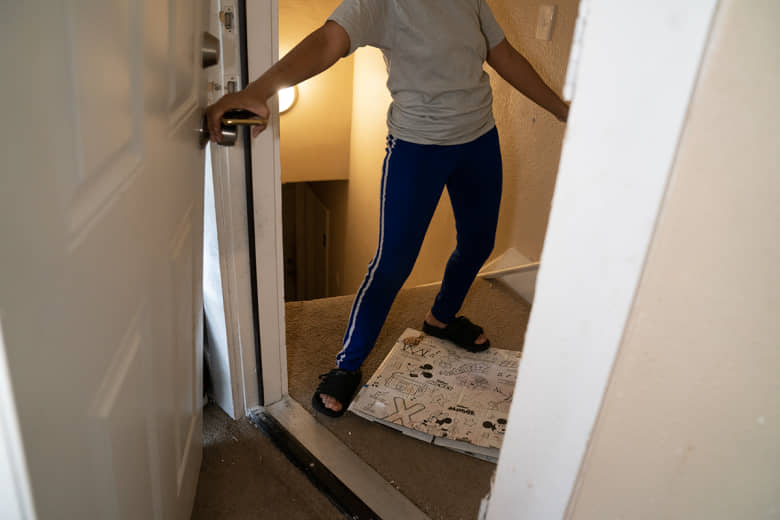As a landlord, ensuring the safety and security of your property and tenants is paramount. However, dealing with a threatening tenant can be a difficult situation to navigate.
In this article, we will explore your options as a landlord when facing a tenant who is verbally or physically threatening you.
Can I legally evict a tenant who has threatened me?
Yes, landlords have the legal right to evict tenants who have made threats. Both landlords and tenants have obligations under landlord-tenant laws.
If a tenant violates their obligation to not damage property or disturb other tenants through threatening behavior, landlords can pursue eviction proceedings. Any threat must be addressed seriously for the safety of all involved.
Related: Can A Landlord Kick You Out For No Reason?
What is considered a tenant threat?
There are different types and levels of threats a tenant could make. A threat is generally defined as any verbal or written statement or behavior that threatens harm to a person or destruction of property.
Some examples include threats of physical violence or harm against the landlord or others, destruction of property, excessive noise or harassment, or violent and abusive behavior towards other tenants.
Even seemingly small threats should not be ignored or taken lightly by landlords.
How serious must a threat be to warrant eviction?

Not all threats are equal in the eyes of eviction law. For a threat to result in eviction proceedings, it generally needs to cause reasonable fear, harm, or create a dangerous environment. A history of violent behavior or an existing lease clause prohibiting threats could also lead to eviction.
Isolated or minor incidents may not immediately allow for eviction but should still be properly addressed. Landlords must use discretion and consult legal guidance to determine if a threat meets the threshold for eviction.
What steps should I take if my tenant threatens me?
If directly threatened, landlords should first ensure their own safety and contact the police if they feel unsafe. All interactions with the tenant should be professionally documented, including dates, times, details of the incident, witnesses, and any damage.
Landlords may then consult an attorney to understand their rights and options such as formal notice, starting an eviction, or applying for a restraining order if the threat is severe. De-escalating the situation should also be attempted if it can be done safely.
How can I prove that a tenant threatened me?
Gathering evidence of threats can be difficult but is important for landlords' legal protection and the eviction process. Proof could include recordings (where legally permitted), police reports, witness statements, and any written correspondence showing threatening behavior or language.
Landlords should document threats immediately and preserve all relevant evidence in case it is needed later on. Having proof if disputes arise over eviction allegations is critical.
What is the eviction process for a threatening tenant?
Once a threat has been properly addressed and deemed significant enough to pursue eviction by an attorney, landlords must follow their state's specific legal eviction process. This usually involves giving written notice to the tenant, filing an eviction case with the court if they do not leave, a court hearing where both sides can argue their case, and an order from the judge for the tenant's removal if ruled in the landlord's favor.
On average, the total eviction process takes several weeks to a few months to complete.
What are my rights as a landlord regarding threatening tenants?
Landlords have a right to protect their property, other tenants, and themselves. This includes taking proper legal action against tenants who violate lease obligations or acting in a dangerous manner through threats. With documented evidence and by following correct eviction procedures, landlords can have threatening tenants removed from their properties.
They also have a right to live and work without fear of harm from unruly or violent tenants. Seeking immediate assistance from an attorney is advised for any landlord facing threats.
Conclusion
Dealing with a threatening tenant situation is stressful but addressing it head-on through clear communication, documentation, legal counsel, and beginning the eviction process if threats escalate is within landlords' rights. While not an easy process, taking the steps outlined ensures both tenants' and landlords' safety according to local housing laws.
With care, discretion and utilizing available legal options and evidence, landlords can resolve threatening tenant issues properly.





